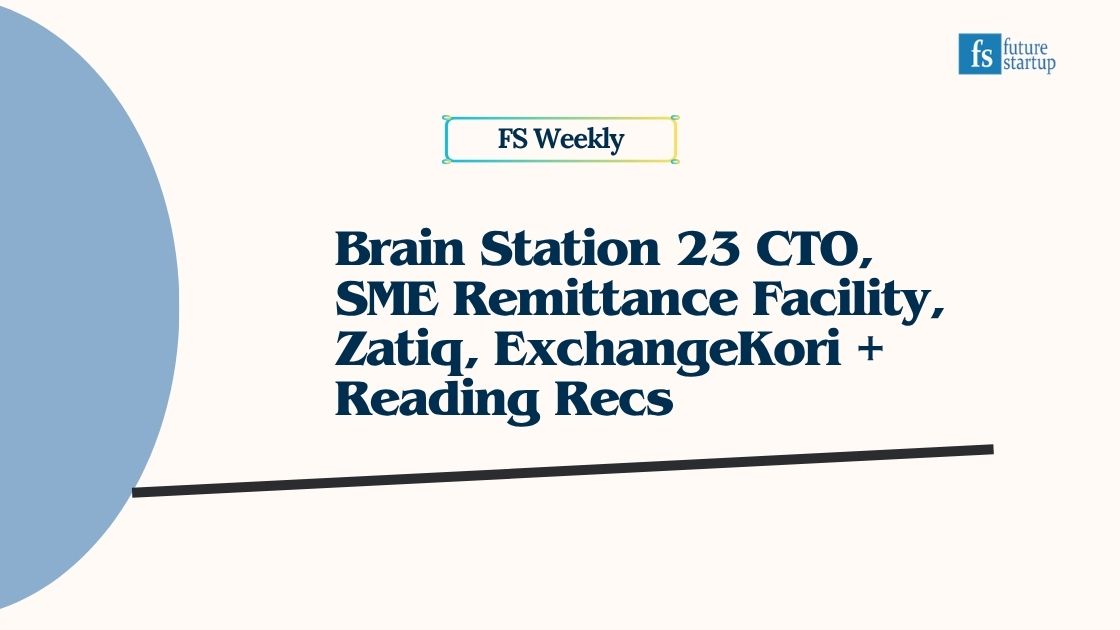
This week’s FS newsletter is packed with fascinating reads. After a long time, FS interviews are making a regular comeback. This newsletter features 01 brilliant new interview.
Additionally, we have excellent articles on Zatiq, an ecommerce platform targeting SMEs, a policy analysis on Bangladesh Bank's recent SME remittance facility, and a deep dive into ExchangeKori's customer experience strategy.
To top it off, we've brought back our reading recs. This issue has 03 excellent links.
All links are below. Enjoy!
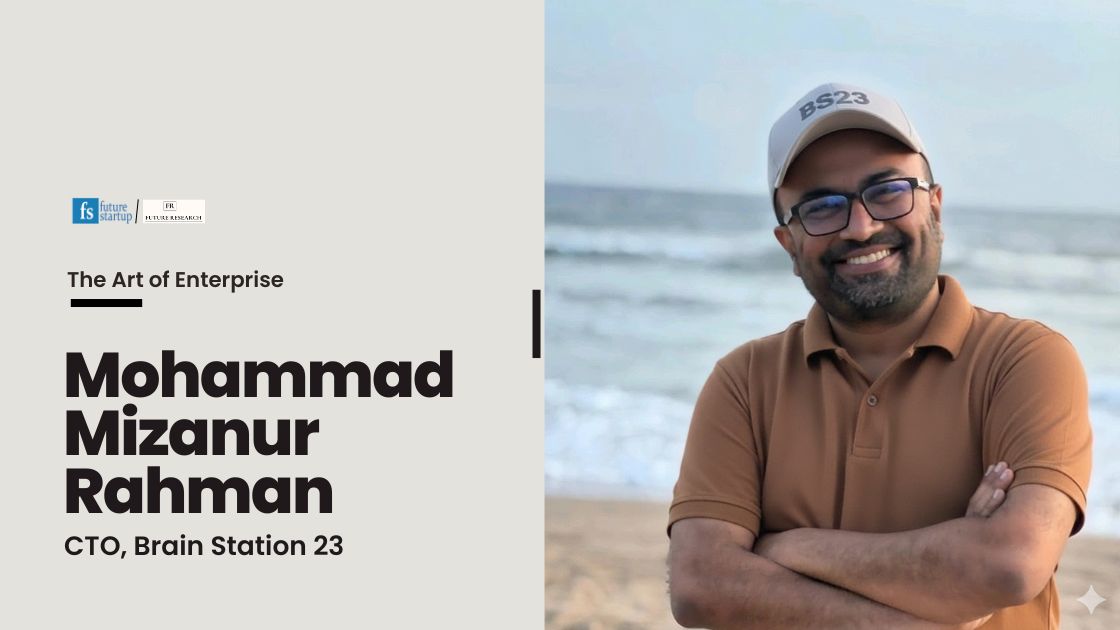
Mohammad Mizanur Rahman is a Director and the CTO of Brain Station 23, one of Bangladesh’s largest software and technology development services companies with a growing global business.
In this all ranging conversation, we talk about his path to what he is doing today, his work as the CTO of Brain Station 23, operational structures and strategies of Brain Station 23 as the company grows into nearly a 1000-people team, how Brain Station 23 is navigating emergence of AI and what he thinks about how AI will reshape the world of software outsourcing business, his management approach, lessons from his journey and much more.
Founded in 2006, Brain Station 23 has seen phenomenal growth over the last nearly two decades, growing from a tiny team of a few people in its early days to a giant of nearly a 1000-people company. The company has not only built a strong global business, it has also built a fascinating organizational model, figuring out how to scale without breaking organizational culture of agility and excellence, create leaders at scale, and constantly evolve with the market.
Growth is a challenge for most companies. The first challenge is breaking out of an apparent growth plateau that all companies inevitably encounter after a certain stage in their journey. The second challenge is designing an organization that can manage growth without breaking apart. An apparent shortage of high quality managers and operators make these challenges doubly painful for many Bangladeshi companies. Being in an industry that is in constant flux and has high competition for talent, this challenge is more pronounced for a company like Brain Station 23.
We look into how Brain Station 23 has innovated on organization design to address some of these challenges. To break out of the growth plateau, take risks, focus on people, and deliver consistently reliable services. To scale successfully, build autonomous small business units using a combination of meaningful autonomy, responsibility, and rewards. Create and empower leaders. Decentralize decision making with meaningful logic. And finally, evolve relentlessly.
We also talk in detail about what Mizan thinks about how AI will change the software outsourcing business, how Brain Station 23 is navigating AI adoption, and whether the company has an AI strategy going forward.
Building a consequential and enduring organization is a near impossible feat. One of my takeaways from this conversation is that Brain Station 23 has figured out the puzzle. To learn how Brain Station 23 has done it, you have to read the interview.
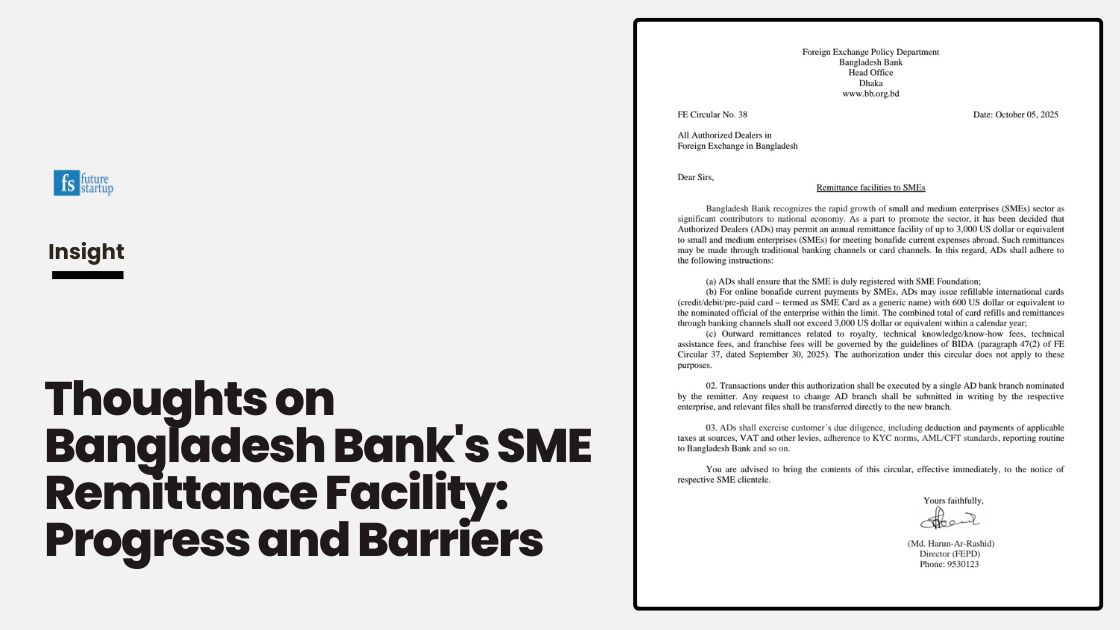
Bangladesh Bank has introduced a new foreign remittance facility for small and medium enterprises. SMEs can now remit up to $3,000 annually for business expenses abroad. They can use bank transfers or special SME Cards with $600 limits. But there's a catch: SMEs must register with the SME Foundation to qualify.
The circular, FEPD Circular No. 38, took effect on October 5, 2025. It provides a structured path for Small and Medium Enterprises (SMEs) to access foreign exchange for international business expenses. It covers routine business expenses but excludes royalty payments and technical fees, which fall under separate BIDA guidelines.
Policies are complex affairs. When you are putting forward a policy decision, you’re not only looking to advance the good and maximize the upsides. You’re equally looking to minimize the downsides and limit unwanted outcomes. This complexity makes it difficult to write about policy decisions. But policies are critical. They come with real costs. Every policy decision has both immediate and long-term consequences. Good intentions are rarely enough. Often, no policy is better than a bad policy. As such, they should be scrutinized.
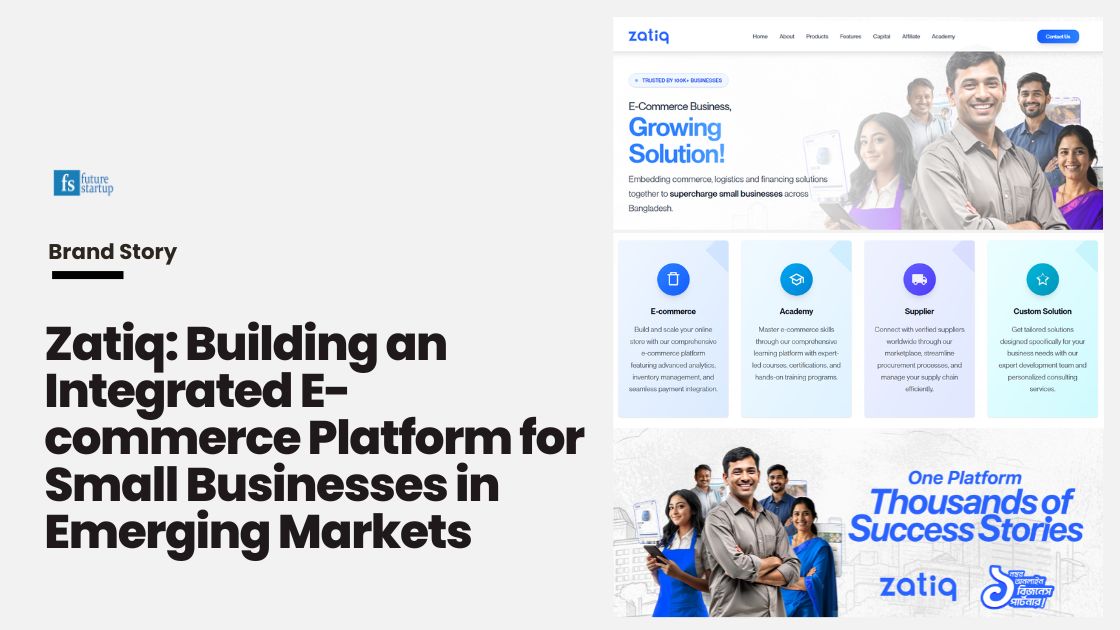
In Bangladesh, small shops and MSMEs have long dominated commerce but face a critical conundrum. While smartphone penetration deepens and digital payments become mainstream and millions of small businesses attempt to transition from traditional retail to e-commerce, the tools to sell efficiently online remain stubbornly out of reach.
Many existing global e-commerce platforms demand technical expertise, hefty monthly subscriptions, and credit cards, all in short supply for many of these MSMEs and digital merchants in Bangladesh. Additionally, many of these platforms are too complex, and critically, not designed for local market conditions.
Instead, these entrepreneurs cobble together makeshift solutions, primarily selling through Facebook (hence F-commerce) with manual record-keeping and cash-on-delivery arrangements.
This digital disconnect, millions of small sellers unable to access suitable e-commerce infrastructure despite eager customers, is not unique to Bangladesh. Across South Asia and the Middle East, a curious paradox exists: rapid digital adoption at the consumer level has outpaced the development of appropriate tools for merchants.
This gap represents not just a business opportunity but a structural economic bottleneck. How do you digitize millions of small merchants who lack technical expertise, capital resources, and access to integrated local solutions?
Enter Zatiq, a three-year-old startup that's built an all-in-one e-commerce infrastructure specifically engineered for emerging markets. The company says it aims to simplify the transition to online business for SMEs in Bangladesh and beyond by offering a suite of accessible, affordable, and user-friendly solutions that address both the entry-level needs of first-time sellers and the advanced requirements of scaling brands.
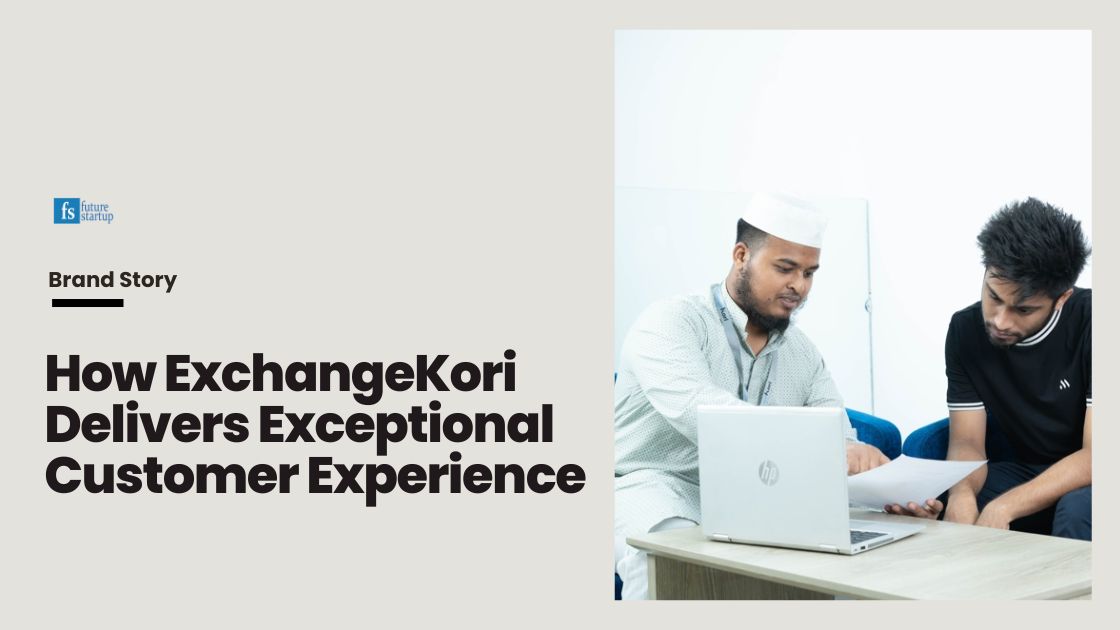
Customer experience in Bangladesh's computer market tells a tale of two realities.
The dominant experience remains frustratingly familiar: walk into most electronics markets—Multiplan Center, IDB Bhaban, Elephant Road—and you'll find customers crouched on plastic stools in crowded spaces, watching technicians juggle multiple repairs while fielding phone calls.
Timelines are often vague ("come back tomorrow, maybe"), warranties come loaded with exclusions, and basic facilities for customers like clean washrooms remain rare luxuries.
Certainly, some established players provide decent service, and a few retailers offer professional environments for new laptop sales. But for the vast middle market, particularly used laptops and repairs, the customer experience frequently ranges from tolerable to actively unpleasant.
For laptop purchases, the challenges multiply. Many used laptop sellers protect themselves with heavily conditional warranties: Battery problems not covered. Display issues excluded. Motherboard failures void coverage. Customers often leave these interactions feeling like they've entered a relationship designed around mutual suspicion rather than mutual benefit.
Corporate buyers face their own frustrations. Even when purchasing multiple laptops, businesses typically encounter the same cramped environments, unclear repair timelines, and conditional coverage that individual customers experience. When devices need service, companies lose productive time sending employees to wait while hoping for favorable treatment.
While these problems aren't universal, there are companies that provide good services, they're common enough to represent a genuine barrier to technology adoption. When purchasing and maintaining laptops involves predictable frustration, businesses delay upgrades, individuals extend the life of failing equipment, and the entire market grows more slowly than it might with better service standards.
Into this environment, ExchangeKori introduced a different standard of service: what if customers actually enjoyed the experience? The company addresses each pain point systematically. Where typical repairs involve vague timelines and anxious waiting, ExchangeKori provides immediate diagnosis, clear explanations, and specific completion dates. Where customers typically endure uncomfortable environments, it offers air-conditioned spaces with proper seating. Where warranties expire into indifference, it maintains relationships through "grace period" that cover repair costs even after official coverage ends.
The Three Elements of the Good Life
A short interesting piece based on Carl R. Rogers’s One Becoming A Person.
The Economist piece argues why government and policy makers should be more intentional about investing in producing geniuses because often individuals make significant differences in advancing many important fields. The article uses AI as an example where top AI researchers have played an outsized role in shaping the field and where every company and nation is competing to attract the same small cohort of AI talents. The article argues that policy markets would do better if they instead invest in spotting and nurturing talents because many highly capable young talents don’t flourish due to lack of opportunities.
The best general advice on earth
A bunch of very good advice from William James on habits and how to to think about habits.
